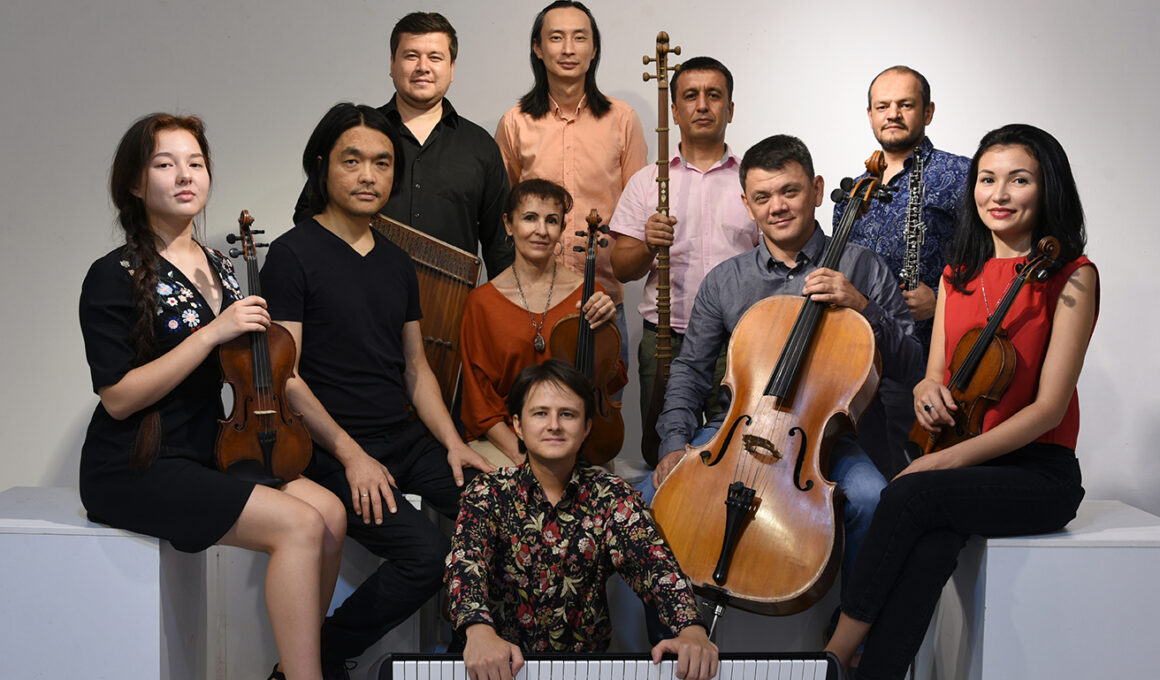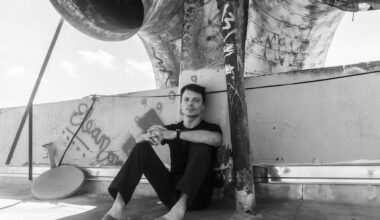Piyawat Louilarpprasert is a composer who works with the interweave of music composition, visual art, and technology. “The rebel Thai composer taking music to unheard heights”, as CNN News World called him. He has been awarded grants, commissions, and prizes such as ASCAP Morton Gould Award 2018-2021 (USA), Matan Givol Prize (Israel), Sergei Slonimsky Award (Russia), Charles Stewart Richardson Award (UK), British Council Culture (UK), American Composer Orchestra Earshot (USA), Pro Helvetia (Switzerland), Japan Foundation (Japan) and many more. His works have been performed in festivals such as Darmstadt, Lucerne, Time of Music (Finland), Gaudeamus, Saint Petersburg New Music, and more. He has also worked with renowned performers: Arditti String Quartet, Berlin Philharmonic Horn Section, ICE, Yarn Wire, Wet Ink, Lucerne Alumni, Switch Ensemble, Tacet(i), Omnibus, Orkest Ereprijs, Thailand Philharmonic, Royal Philharmonic, American Composer Orchestra, and more. As a composer/researcher, he was awarded the Don Michael Randel Research Fellowship to conduct his new music course: P.I.Y. (Perform it Yourself) at Cornell University, Ithaca where he is now obtaining his PhD in composition. He studied with Valeriy Rizayev, Dai Fujikura, Kevin Ernste, Chaya Czernowin, Olga Neuwirth, and, currently, with Marianthi Papalexandri-Alexandri.
Piyawat Louilarpprasert is part of the Omnibus Ensemble. At Donaueschingen Global, they presenting new compositions from China, Thailand, Bahrain and Turkey at Akademie der Künste on Wednesday, 20 October.
FACTS
1. Fact is something you created and believed in.
2. Music is a part of my life, hence, watching “One Piece” manga, is an important part of my life too.
3. Be in the moment, because the moment happens only once in your life.
QUESTIONS
1. What is the biggest inspiration for your music?
Be in the moment.
2. How and when did you get into making music?
I started to play trombone in a Marching Band when I was 15. I enjoyed seeing my progress – playing/ composing/ making/ editing/ experimenting/ and, destroying (Non)-musical elements.
3. What are 5 of your favourite albums of all time?
I have no favourite albums. I enjoyed listening to many sounds or music around me.
4. What do you associate with Berlin?
As a composer, artist and tourist. For this time particularly, I am working on a new collective piece with Omnibus Ensemble and will be performed at Akademie der Künste Berlin.
5. What’s your favourite place in your town?
Two places: 1) all beaches with the sun, 2) my room with a laptop
6. If there was no music in the world, what would you do instead?
computing hacker
7. What was the last record/music you bought?
I don’t usually buy records, I am more into live performance and conversation with people.
8. Who would you most like to collaborate with?
I love my ensemble, Tacet(i) from Thailand.
9. What was your best gig (as performer or spectator)?
My best gig was with a guitarist and a technician from my ensemble, where we received support from Bangkok Arts ad Culture Centre. We worked on my interdisciplinary piece for guitar, lights, video and electronics.
10. How important is technology to your creative process?
It depends on what kind of technology you are trying to say. To me, technology is a tool. I prefer creative thought rather than creative technology.
11. Do you have siblings and how do they feel about your career/art?
I have 1 brother and 1 sister. They are amazing. They are proud of my work.
Omnibus Ensemble is a pioneer of contemporary music in Central Asia. Founded in 2004 in Tashkent, Uzbekistan, by young musicians under the artistic leadership of composer and conductor Artyom Kim, Omnibus today is a collective recognized worldwide for its unique voice. From the very beginning, the key concept of the group was to play music which had never been played before in Central Asia, and to present the widest possible spectrum of phenomenon and processes in the new music world to a Central Asian audience. The years of work in artistic and educational projects, in collaboration with outstanding artists from Europe and America, created Omnibus’ reputation as a platform where innovation meets tradition, and East meets West. All projects of the ensemble are based on the “Method for Collective Resonance Composing” – the unique system of structuring the creative process within the group of artists. In 2019 Omnibus received the prestigious international “Aga Khan Music Award” for its educational activities.
Photo © Omnibus Ensemble


